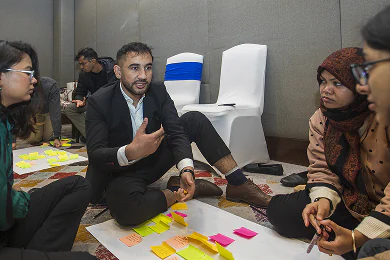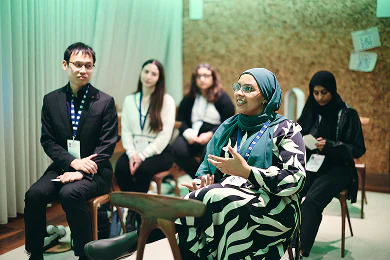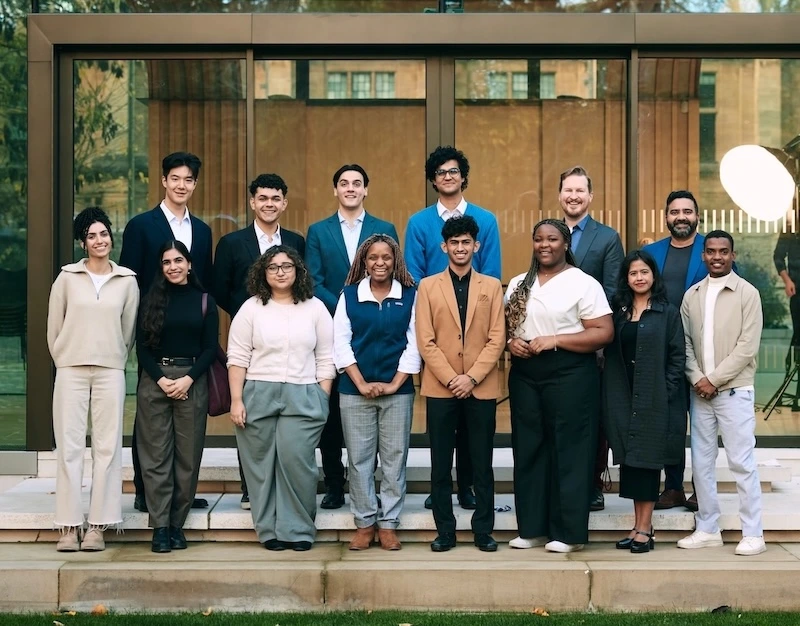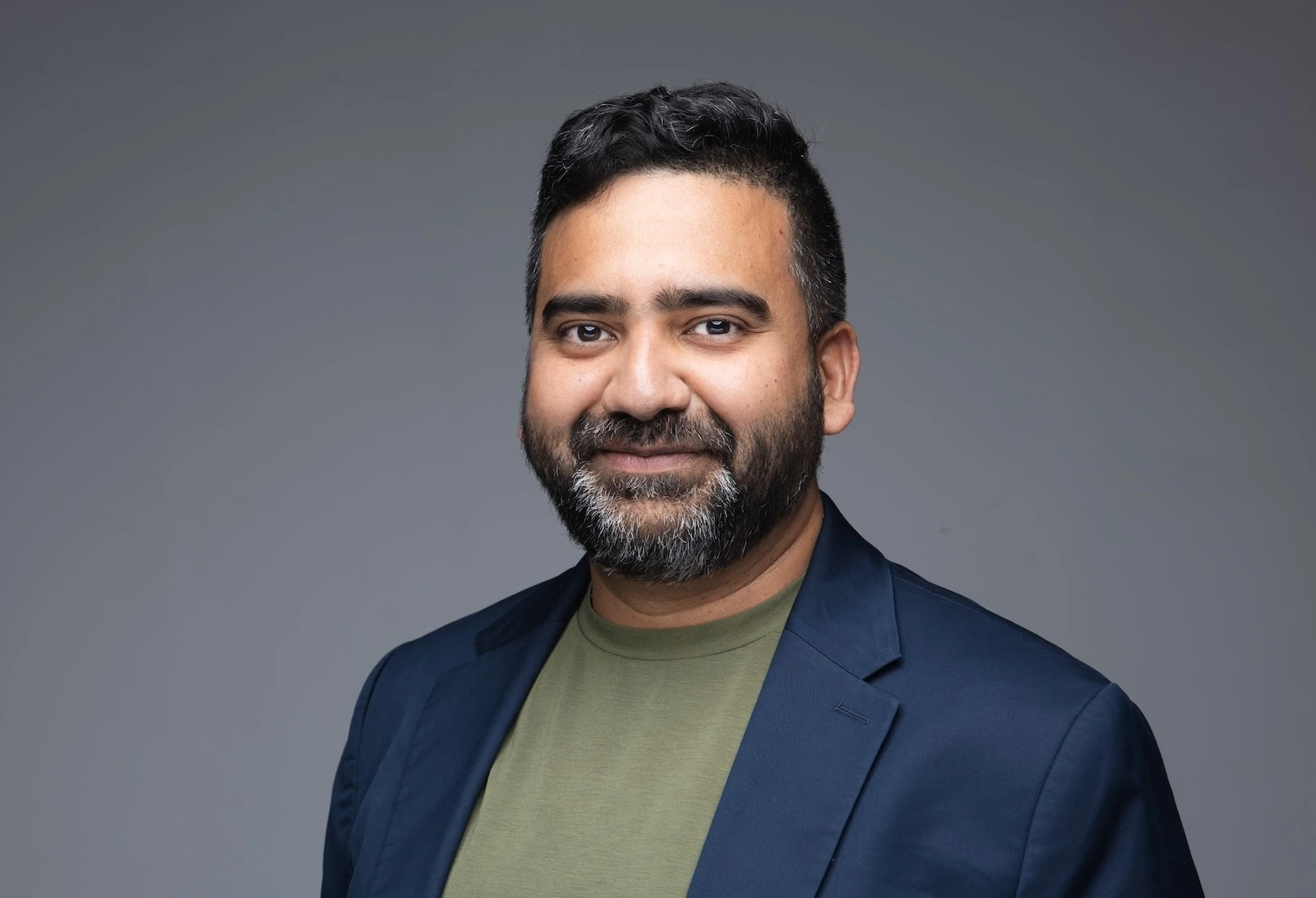































Civic Tech Institute
A 10-week program for recent graduates and emerging leaders in the social sector (government, nonprofit, and social enterprise) to develop a deep understanding of civic challenges based on the principles of planetary health and practice the data, AI, and advocacy skills critical to achieving impact at scale.
February 27 - May 10, 2026
Global, cohort-based online learning
Fully funded (no tuition)
Why joIn
The future of civic leadership requires understanding data
The Civic Tech Institute empowers leaders to converse effectively with data and artificial intelligence (AI) to drive informed and decisive action impacting policy, governance, sustainability, healthcare, and other social services.
Problems-based Approach
Engage productively with the context surrounding complex global crises like climate change, public health, and networked societies
Accessible from Anywhere
Acquire new skills, outlooks, and insights about your domain without having to take a career break

Find your Community
Connect with others grappling with the same challenges as you to share and learn best practices
Advance your Career
Access the tools, networks, and perspectives you need to thrive in the 21st-century workforce
Curriculum
What you’ll learn
The Civic Tech Institute (CTI) is designed to teach the technological and community practice tools that can be deployed across sectors to address the most pressing social challenges of our time. This will be done via hands-on projects and seminars that encourage you to explore topics deeply. You will also cultivate the essential skill of "learning to learn," which will equip you to tackle present and future challenges.
Applied AI for Civic Challenges
Learn the core statistical reasoning and analytics behind AI
Becoming a data and evidence-informed leader requires a conceptual understanding of data science and AI tools, even if you are not directly engaged in data analysis or developing new algorithms. These are the questions you will explore as part of this toolkit:
How can we create effective data visualization?
What types of data can be used for building AI applications?
When and why do AI algorithms fail, and how are they biased?
Why It Matters
Whether you want to develop effective policies for a city government, run an impact evaluation for your nonprofit, or develop a new technology tool for social impact, this course will help you build a data toolkit key to solving a wide array of problems in civic tech.
Community Action Lab
Learn to sustain dialogue across policy disagreements
Working with varied constituencies in a community requires capacities for collaborating and connecting with others. Our global classroom affords us the opportunity to engage each other from varied life experiences and world views. The Lab will equip you with the following tools:
Creating effective interpersonal and small-group communication.
Strengthening interdisciplinary team creativity.
Building connections between ideas, people, and stories.
Why It Matters
One of the most powerful ways to navigate conflict and polarisation is storytelling. This Lab will help you learn about the community we carry with us, the communities we encounter, recognizing social imaginaries, cultivating empathetic imagination, and using a critical response process.
Planetary Health
Study the relationship between Earth’s systems and human-created political, economic and social systems
Developing civic tech requires a fundamental understanding of the elements core to human wellbeing such as suitable climatic and environmental conditions and water and energy resources. Human wellbeing is thus inextricably linked to Planetary Health. Choices made by human-created systems impact our perception, access and management of these Earth’s systems. In this course, you will:
Understand the principles of Planetary Health and how it relates to human wellbeing.
Explore civic-tech tools to manage Planetary Health.
Why It Matters
As a civic leader, you will need a deep understanding of how different elements that are important to societal welfare are interconnected. Planetary Health provides a framework for understanding the different parts, quantifying any changes that occur across the system and provides a global lens for thinking through local choices that can create deep impact.
Practitioner Seminars
Hear from practitioners of how these principles are made actionable.
In global tech settings, public policy, law, politics and social science all come together to determine the various factors in technological development and progress. In this module, you will learn in the following modes:
Discussions of real-world case studies
Seminars with experts
Analyzing news and reportage with nuance
Why It Matters
This module will provide you with the requisite context to be able to effectively communicate with policymakers, citizens and other stake-holders.

Eligibility
Who can apply
We believe transformative innovators transcend disciplines and are not defined by test scores. Our ideal applicants are creative problem-solvers in the social sector who are highly motivated and persistent in the face of challenges. We welcome people who thrive in collaborative spaces, and demonstrate their talent with humility.
Work experience in the social sector
or demonstrated intent to work in it
Able to commit 9 hours per weekend
to attend 3-hour live sessions from Friday to Sunday
Able to commit 10 hours additionally per week
for projects and assignments
All Backgrounds
We welcome applicants from all disciplines and geographies
How the program works
Learn by doing
Small cohorts (25 students max)
Direct mentorship & discussion-based learning
Project-based learning
Solve real-world problems using AI & data
Live, interactive online classes
No pre-recorded lectures
Timezone-friendly scheduling
Classes run from 13:00 - 16:00 UTC
Alumni impact
Discover Alumni Success Stories
Our alumni have gone on to land top internships, fellowships, and jobs in AI, policy, and entrepreneurship.
After the program
Career & Community Support
At the conclusion of each program term, graduates are entitled to a Certificate of Completion and are welcomed to join the Equitech Alumni Network. This cross-cohort community of talented young innovators share opportunities, collaborate on shared research, and inspire one another. A few of the privileges of alumni status include:
Career mentorship & recommendation letters
Faculty support for internships, fellowships and job applications
Ongoing education & Leadership Labs
Monthly discussions with top leaders in AI, policy, and academia

Global alumni retreats & in-person gatherings
Curated retreats, interdisciplinary collaborations, and community-building events around the world
Exclusive access to research & job opportunities
Alumni get first access to Equitech-led fellowships, research projects, and career placements






Teachers & mentors
Learn from world-class Faculty
Our faculty are leaders in data science, public policy, earth science, and civic innovation. We are committed to small-cohort, hands-on teaching that ensures every student gets individual mentorship.
Tuition & financial aid
$9,500
Full Scholarship
Thanks to the generous support of our philanthropic partners, every admitted scholar receives a full scholarship to make the program more accessible to global talent.
What’s Included?
Ten weeks of instruction.
Career and mentorship support for one year on successful completion.
Access to ongoing Equitech Alumni Network programming.
Timeline
Applications & Selection
The deadline to apply for the 2026 edition of the Civic Tech Institute was Sunday, January 18, 2026. The applications include a written and an interview component. If you have any questions, please write to admissions@equitechfutures.com.
JANUARY 2026
Written applications due
LATE JANUARY 2026
Faculty interviews with finalists
EARLY FEB 2026
Final admission decisions
Eligibility & Applications
What educational qualifications does an ideal candidate have?
Candidates from all educational backgrounds are welcome to apply - including those that come from non-traditional academic disciplines or degrees, as well as applicants who have not been able to complete an undergraduate degree but are actively working in the social sector. An ideal candidate would instead have clear, demonstrated experience in working with governments, NGOs, or social enterprises. Some profiles of successful CTI scholars from the last year can be found in our Newsroom.
Who should apply?
The CTI is open to applicants from all educational backgrounds, anywhere in the world, working in the social sector (local, state, or national governments, nonprofits, NGOs, social enterprises) who want to use data and technology to tackle societal changes. The CTI does not require any prior background in data science or programming and applicants from non-stem backgrounds are particularly encouraged to apply.
I don't meet xyz criteria, but meet all the others. Can I still apply?
Applicants must commit to attending 3 hours of live classes on Fridays, Saturdays, and Sundays for 10 weeks. If you have questions about any other criteria - please reach out to us at admissions@equitechfutures.com and we can discuss if the program would be a right fit for you.
I am a citizen of xyz country, residing in abc country. Can I still apply?
Equitech Futures is committed to creating a global community that is inclusive and accessible to everyone who wishes to be a part of it. We encourage applicants from all professional, geographic, cultural, and socioeconomic backgrounds to apply.
I have a question that isn't listed here.
Reach out to us at admissions@equitechfutures.com!
Learning Experience
I've done online learning before. How is this program different?
Massive Online Open Courses (MOOC) are generally asynchronous offerings that allow you to go at your own pace but without customization. That flexibility comes with less accountability. However, small cohort-based classes at Equitech Futures ensure that you learn through live discussions with a talented group of peers. Learning with others, and being able to speak directly to instructors as you do, will make a difference at how much you are able to take in.
What is the format of classes?
Coursework in the CTI is evenly weighted between Applied AI for Civic Challenges, Community Action Lab, and Planetary Health, with regular meetings for Practitioner Seminars. Each course meets for 3 hours each week in live, synchronous, cohort-based online classes. In order to accommodate working professionals, our meeting times are oriented toward the weekends, meeting from 13:00-16:00 UTC on Fridays, Saturdays and Sundays.
What technology platforms are used?
Our live classes and special seminars are accessed via Zoom. Individual coaching sessions with faculty, social encounters, and study groups are held on our course-related Discord server.
Commitment & Completion
I work full time. Will I have to ask my supervisor for time off work to complete this program?
Classes are scheduled between 13:00 UTC and 16:00 UTC on Fridays, Saturdays and Sundays. We orient our coursework toward the weekends in order to accommodate working professionals in our program. However, if the class time overlaps with your scheduled work hours, we ask that you have a conversation with your supervisor before accepting your place in the program to ensure you will be allowed the flexibility over these 10 weeks to attend class fully without work distractions and with your video camera on. In the past, many employers have made this accommodation when they consider the growth you will achieve.
What happens if I begin but cannot complete the course?
Our cohort is small and we have significantly more applicants than we have the capacity to serve. We expect our incoming cohort to consider their own participation seriously because accepting a place closes the opportunity for another student. For this reason, if a student begins but does not complete the program for any reason other than a health emergency, we will be unable to attest to their participation or to accept an application for any other program in the future.
Will I receive a certificate for completing the course?
Yes, we provide a completion certificate contingent on attendance record and final project submissions.












































